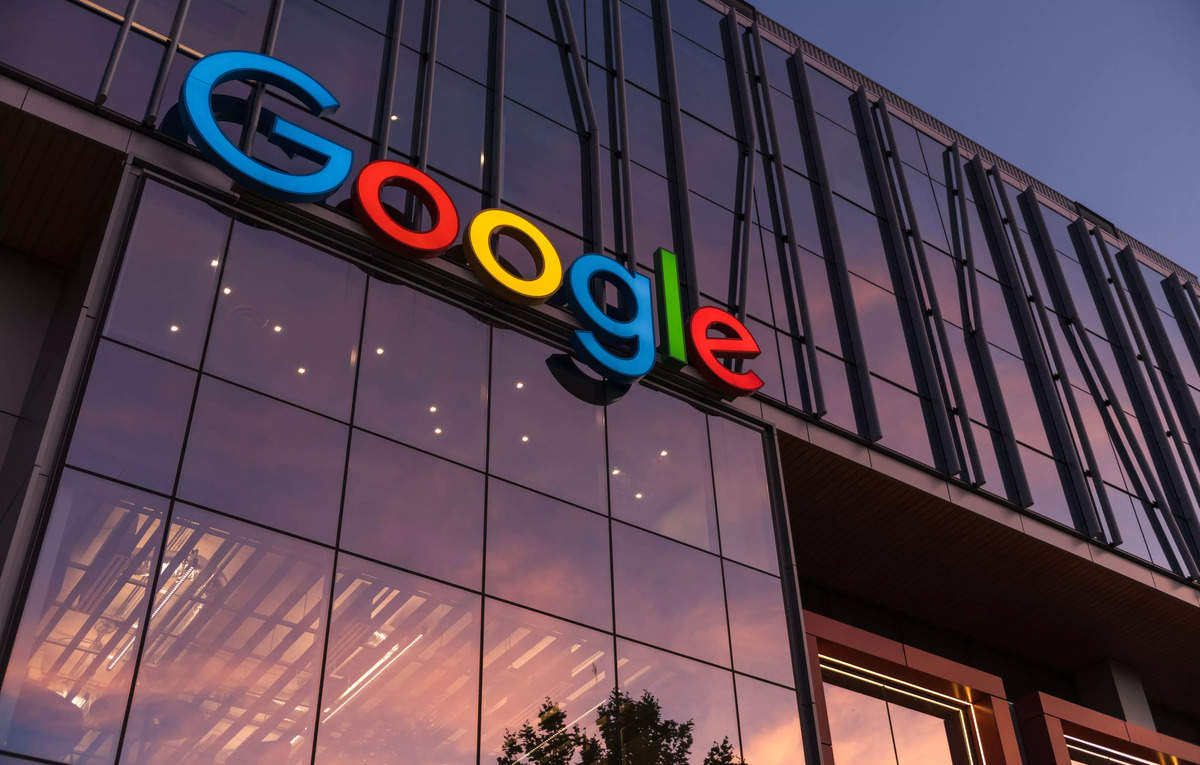Following a court verdict that found Google monopolised online search, the US Justice Department is looking into breaking up the corporation.
This would be a huge antitrust action, comparable to the failed attempt to topple Microsoft decades ago.
Less severe alternatives include compelling Google to share more data with competitors and putting mechanisms in place to prevent it from acquiring an unfair advantage in AI products, according to the sources, who declined to be identified because they were discussing private conversations.
Regardless, the government will likely seek a ban on the type of exclusive contracts that were at the center of its case against Google.

If the Justice Department pushes ahead with a breakup plan, the most likely units for divestment are the Android operating system and Google’s web browser Chrome.
Officials are also considering trying to compel the sale of AdWords, the company’s platform for selling text advertising, according to one of the sources.
The Justice Department’s negotiations have heated up in the aftermath of Judge Amit Mehta’s finding on August 5 that Google unjustly monopolized the markets for online search and search text ads.
Google has stated that it will appeal the ruling, but Mehta has directed both parties to begin planning for the second phase of the lawsuit, which will include the government’s ideas for restoring competition, including a potential separation request.
Following a court verdict that found Google monopolised online search, the US Justice Department is looking into breaking up the corporation.
This would be a huge antitrust action, comparable to the failed attempt to topple Microsoft decades ago.
Less severe alternatives include compelling Google to share more data with competitors and putting mechanisms in place to prevent it from acquiring an unfair advantage in AI products, according to the sources, who declined to be identified because they were discussing private conversations.
Regardless, the government will likely seek a ban on the type of exclusive contracts that were at the center of its case against Google.

If the Justice Department pushes ahead with a breakup plan, the most likely units for divestment are the Android operating system and Google’s web browser Chrome.
Officials are also considering trying to compel the sale of AdWords, the company’s platform for selling text advertising, according to one of the sources.
The Justice Department’s negotiations have heated up in the aftermath of Judge Amit Mehta’s finding on August 5 that Google unjustly monopolized the markets for online search and search text ads.
Google has stated that it will appeal the ruling, but Mehta has directed both parties to begin planning for the second phase of the lawsuit, which will include the government’s ideas for restoring competition, including a potential separation request.
Following a court verdict that found Google monopolised online search, the US Justice Department is looking into breaking up the corporation.
This would be a huge antitrust action, comparable to the failed attempt to topple Microsoft decades ago.
Less severe alternatives include compelling Google to share more data with competitors and putting mechanisms in place to prevent it from acquiring an unfair advantage in AI products, according to the sources, who declined to be identified because they were discussing private conversations.
Regardless, the government will likely seek a ban on the type of exclusive contracts that were at the center of its case against Google.

If the Justice Department pushes ahead with a breakup plan, the most likely units for divestment are the Android operating system and Google’s web browser Chrome.
Officials are also considering trying to compel the sale of AdWords, the company’s platform for selling text advertising, according to one of the sources.
The Justice Department’s negotiations have heated up in the aftermath of Judge Amit Mehta’s finding on August 5 that Google unjustly monopolized the markets for online search and search text ads.
Google has stated that it will appeal the ruling, but Mehta has directed both parties to begin planning for the second phase of the lawsuit, which will include the government’s ideas for restoring competition, including a potential separation request.
Following a court verdict that found Google monopolised online search, the US Justice Department is looking into breaking up the corporation.
This would be a huge antitrust action, comparable to the failed attempt to topple Microsoft decades ago.
Less severe alternatives include compelling Google to share more data with competitors and putting mechanisms in place to prevent it from acquiring an unfair advantage in AI products, according to the sources, who declined to be identified because they were discussing private conversations.
Regardless, the government will likely seek a ban on the type of exclusive contracts that were at the center of its case against Google.

If the Justice Department pushes ahead with a breakup plan, the most likely units for divestment are the Android operating system and Google’s web browser Chrome.
Officials are also considering trying to compel the sale of AdWords, the company’s platform for selling text advertising, according to one of the sources.
The Justice Department’s negotiations have heated up in the aftermath of Judge Amit Mehta’s finding on August 5 that Google unjustly monopolized the markets for online search and search text ads.
Google has stated that it will appeal the ruling, but Mehta has directed both parties to begin planning for the second phase of the lawsuit, which will include the government’s ideas for restoring competition, including a potential separation request.
Following a court verdict that found Google monopolised online search, the US Justice Department is looking into breaking up the corporation.
This would be a huge antitrust action, comparable to the failed attempt to topple Microsoft decades ago.
Less severe alternatives include compelling Google to share more data with competitors and putting mechanisms in place to prevent it from acquiring an unfair advantage in AI products, according to the sources, who declined to be identified because they were discussing private conversations.
Regardless, the government will likely seek a ban on the type of exclusive contracts that were at the center of its case against Google.

If the Justice Department pushes ahead with a breakup plan, the most likely units for divestment are the Android operating system and Google’s web browser Chrome.
Officials are also considering trying to compel the sale of AdWords, the company’s platform for selling text advertising, according to one of the sources.
The Justice Department’s negotiations have heated up in the aftermath of Judge Amit Mehta’s finding on August 5 that Google unjustly monopolized the markets for online search and search text ads.
Google has stated that it will appeal the ruling, but Mehta has directed both parties to begin planning for the second phase of the lawsuit, which will include the government’s ideas for restoring competition, including a potential separation request.
Following a court verdict that found Google monopolised online search, the US Justice Department is looking into breaking up the corporation.
This would be a huge antitrust action, comparable to the failed attempt to topple Microsoft decades ago.
Less severe alternatives include compelling Google to share more data with competitors and putting mechanisms in place to prevent it from acquiring an unfair advantage in AI products, according to the sources, who declined to be identified because they were discussing private conversations.
Regardless, the government will likely seek a ban on the type of exclusive contracts that were at the center of its case against Google.

If the Justice Department pushes ahead with a breakup plan, the most likely units for divestment are the Android operating system and Google’s web browser Chrome.
Officials are also considering trying to compel the sale of AdWords, the company’s platform for selling text advertising, according to one of the sources.
The Justice Department’s negotiations have heated up in the aftermath of Judge Amit Mehta’s finding on August 5 that Google unjustly monopolized the markets for online search and search text ads.
Google has stated that it will appeal the ruling, but Mehta has directed both parties to begin planning for the second phase of the lawsuit, which will include the government’s ideas for restoring competition, including a potential separation request.
Following a court verdict that found Google monopolised online search, the US Justice Department is looking into breaking up the corporation.
This would be a huge antitrust action, comparable to the failed attempt to topple Microsoft decades ago.
Less severe alternatives include compelling Google to share more data with competitors and putting mechanisms in place to prevent it from acquiring an unfair advantage in AI products, according to the sources, who declined to be identified because they were discussing private conversations.
Regardless, the government will likely seek a ban on the type of exclusive contracts that were at the center of its case against Google.

If the Justice Department pushes ahead with a breakup plan, the most likely units for divestment are the Android operating system and Google’s web browser Chrome.
Officials are also considering trying to compel the sale of AdWords, the company’s platform for selling text advertising, according to one of the sources.
The Justice Department’s negotiations have heated up in the aftermath of Judge Amit Mehta’s finding on August 5 that Google unjustly monopolized the markets for online search and search text ads.
Google has stated that it will appeal the ruling, but Mehta has directed both parties to begin planning for the second phase of the lawsuit, which will include the government’s ideas for restoring competition, including a potential separation request.
Following a court verdict that found Google monopolised online search, the US Justice Department is looking into breaking up the corporation.
This would be a huge antitrust action, comparable to the failed attempt to topple Microsoft decades ago.
Less severe alternatives include compelling Google to share more data with competitors and putting mechanisms in place to prevent it from acquiring an unfair advantage in AI products, according to the sources, who declined to be identified because they were discussing private conversations.
Regardless, the government will likely seek a ban on the type of exclusive contracts that were at the center of its case against Google.

If the Justice Department pushes ahead with a breakup plan, the most likely units for divestment are the Android operating system and Google’s web browser Chrome.
Officials are also considering trying to compel the sale of AdWords, the company’s platform for selling text advertising, according to one of the sources.
The Justice Department’s negotiations have heated up in the aftermath of Judge Amit Mehta’s finding on August 5 that Google unjustly monopolized the markets for online search and search text ads.
Google has stated that it will appeal the ruling, but Mehta has directed both parties to begin planning for the second phase of the lawsuit, which will include the government’s ideas for restoring competition, including a potential separation request.














